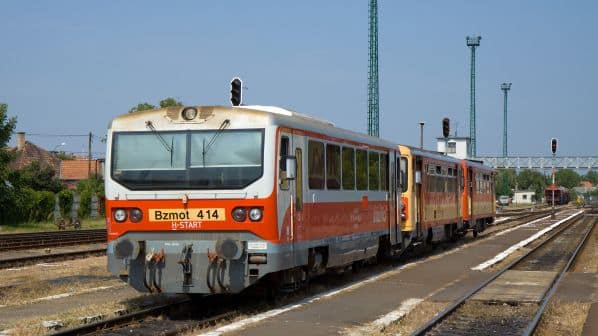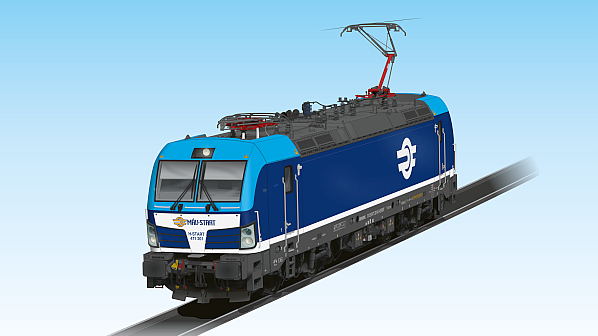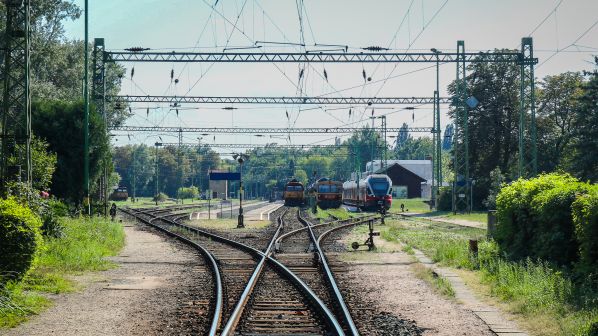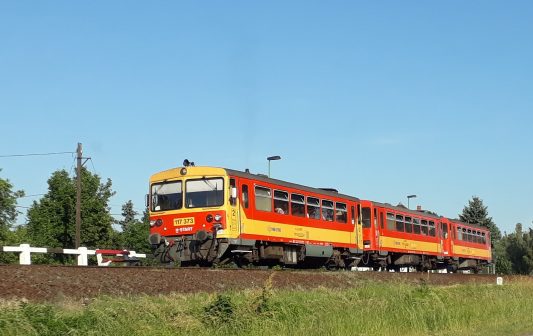HUNGARIAN State Railways (MÁV) has replaced regional train services with buses on 10 routes until further notice, acting under the instructions of the Ministry of Construction and Transport.
MÁV says that the bus replacement services introduced on August 1 are a short-term solution to a shortage of rolling stock for regional services. Although it says it is “constantly recruiting,” the national operator is also facing a staff shortage and is awaiting the applications of those who intend to join the company.
Previous transport policy had increased regional train services to 3.5 million train-km in December 2022, and MÁV says that it warned the government that a lack of drivers and onboard staff as well as rolling stock posed a risk to operating the service required.
In order to provide reliable, attractive and competitive regional services, MÁV says that a long-term rolling stock strategy is needed. It points out that the Bz diesel railcars that operate on these routes, built between 1971 and 1986, are prone to frequent mechanical failures. This situation has only been exacerbated by a lack of spare parts due to the war in Ukraine, according to MÁV.
By order of route number, the 10 lines where buses have replaced trains are:
- 38 Somogyszob - Nagyatád
- 47 Dombóvár - Godisa - Komló
- 78 Balassagyarmat - Ipolytarnóc
- 89 Miskolc-Tiszai - Nyékládház - Tiszaújváros
- 98 Abaújszántó - Hidasnémeti
- 103 Karcag - Tiszafüred
- 114 Mátészalka - Kocsord also - Csenger
- 121 Újszeged - Mezőhegyes
- 125 Mezőhegyes - Battonya, and
- 146 Lakitelek - Kunszentmárton.
MÁV says that in conjunction with the Ministry of Construction and Transport, it will be monitoring traffic on these routes and will make any necessary changes. A higher service frequency is likely to be introduced following the end of the summer school holiday in Hungary.
The replacement bus services are operated by Volánbusz, which has been a MÁV subsidiary since January 2021. MÁV says that its ownership of the bus company has created synergies that enable it to offer a competitive regional public transport solution, even in the midst of the current challenges.
Deploying modern, air-conditioned buses on the regional routes will make travel more reliable and more comfortable, according to MÁV. Volánbusz is using a new fleet of environmentally-friendly buses equipped with an electronic passenger information system, onboard CCTV, a space for wheelchairs and pushchairs, a ramp for passengers with reduced mobility, and USB ports.
The rail replacement services stop at railway stations where possible or at nearby Volánbusz stops. MÁV says that these bus stops are usually closer to residential areas or village centres than the railway station.
In some areas buses will call at more stops than the trains they replace, meaning that passengers will have less far to walk to reach their final destination. According to MÁV, this will improve access to public transport for many people.
MÁV fares and discount schemes apply on the replacement bus services, but tickets must be purchased before boarding. Bicycles cannot be carried.
Journey times by bus are broadly similar to those by rail, and MÁV says that the prime focus of developing the timetables for the replacement services was to maintain connections with mainline rail services.




